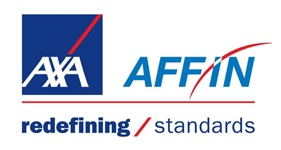Monthly payslips are important as they contain relevant information such as gross payment, chargeable...
Propay, now part of activpayroll
Payroll and HR operations always present unique challenges, whether local or global. By partnering with you and your businesses, we make sense of payroll and HR complexity in Malaysia and the wider APAC region.
Our services
We understand that you want to move, operate and flourish in Malaysia and beyond. By pairing our global network of local specialists with our technological resources, we make this happen.
Employer of Record
Want to expand your business into a new region in Malaysia or the wider APAC region and beyond? We’ve got you.
We provide end-to-end managed mobility solutions, ensuring your talent placements are in line with corporate mobility policies and contract terms.
From drafting employment contracts in local languages and handling legal aspects to financial reports on talent remuneration, navigate the complicated world of expansion in Malaysia or abroad with our help.
- Receive Talent Care & Mobility Management
- Receive Employment Permit Checks
- Outsource Contractor Invoicing
- Access local talent pools
Local Payroll
Managing local regulations, multiple data streams and compliance often feels like an uphill battle. Our trusted approach makes sense of local payroll in Malaysia.
- Payroll outsourcing.
- Statutory Lodgement & Payment Services.
- Employee tax computation, tax breaks, and income tax return filing.
Global Payroll
Our people, processes and technology help you navigate the complexity of payroll beyond the APAC region. We support businesses in Malaysia, helping them expand in over 150 countries by navigating the intricacies of local legislation, taking care of your people and helping you maintain compliance internationally.
- Compliant payroll in over 150 countries.
- Seamless integrations with your HR and Finance data.
- Automation making processing quick and accurate.
- Global country specialists of local regulations and laws.
Global HR
Whether we’re helping your team expand into a new territory or streamlining current processes, our team of specialists have brought clarity to over 500 businesses like yours. Our global HR services are integrated with our global mobility and payroll services, ensuring a compliant execution every step of the way.
- Procedures and Framework - From employment contracts to Collective Agreements.
- Benefits - Mandatory and supplementary benefit requirements.
- Compliance - Local labour Law Compliance in over 150 countries.
- HR Support - Salary bench-marking restructuring and more.
Key features and benefits
Global expertise with local knowledge
Whether it’s global expertise or local Malaysian knowledge you need, we support you by making sense of complex legislation. Maintain compliance in Malaysia and beyond with our partnerships.
A service tailored to your industry and size
Our partners comprise a diverse mix of regional and multinational companies with diversifying interests in Malaysia and Asia.
HR & payroll specialists
We are specialists in HR, payroll and employee mobility, with two decades’ experience in helping organisations grow, streamline and pay their employees compliantly, both at home and abroad.
A secure global payroll solution
activ8, our in-house payroll solution for global payroll, enhances data accessibility, visibility and control over your payroll processes, integrating with the software you need to stay on top.
Don’t just take our word for it
From start-ups to SMEs and fortune 500 companies, we bring control, visibility and clarity to all shades of global business.

It’s about the ‘personal touch’ and responsiveness of the Consultants as well as the timelines of service delivery despite short notice. We are happy with the service rendered by ProPay Partners thus far.

Siemens Pengerang project site has been working with Propay Partners Sdn Bhd since early 2015. Over the period, the management and the team of Propay Partners has been providing services to us with speed, accuracy and reliability.
Their quick turnaround time, business knowledge, approach and constant updates are recognizable. It is a clear reflection of partnership. We do not hesitate to recommend Propay Partners to organizations looking for options in Malaysia for staffing solutions.

The team has been extremely resourceful and handy with needed HR solutions on the ground in Malaysia, where I have no resources to support. The team members are soft spoken, calm while facing uncertainties and comes with good listening skills.
Unilever’s working experience with ProPay Partners has been exceptional. We appreciate ProPay Partners’ ability to maintain their efficiency and timeliness in handling our payroll, while always being committed to personal, friendly and professional services.

ProPay Partners delivered exceptional personalised services ensuring payroll was prepared on time and administered flexibility alongside our resources.

It’s about the ‘personal touch’ and responsiveness of the Consultants as well as the timelines of service delivery despite short notice. We are happy with the service rendered by ProPay Partners thus far.

Siemens Pengerang project site has been working with Propay Partners Sdn Bhd since early 2015. Over the period, the management and the team of Propay Partners has been providing services to us with speed, accuracy and reliability.
Their quick turnaround time, business knowledge, approach and constant updates are recognizable. It is a clear reflection of partnership. We do not hesitate to recommend Propay Partners to organizations looking for options in Malaysia for staffing solutions.

The team has been extremely resourceful and handy with needed HR solutions on the ground in Malaysia, where I have no resources to support. The team members are soft spoken, calm while facing uncertainties and comes with good listening skills.
Unilever’s working experience with ProPay Partners has been exceptional. We appreciate ProPay Partners’ ability to maintain their efficiency and timeliness in handling our payroll, while always being committed to personal, friendly and professional services.

Our partnerships
We understand that every business is unique, and our partnership approach reflects this. Whether we’re attempting to spread your workforce past the APAC region, or we’re making sense of local Malaysian compliance rules, our technology and local specialist gel with your business, ensuring a successful relationship every time.
Let’s Partner
It’s time to make sense of global payroll and payment complexity in over 150 countries.